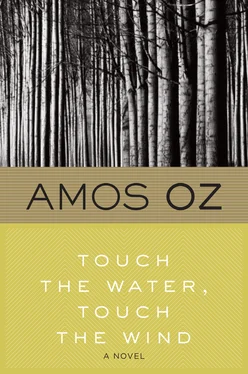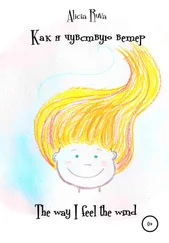And the Professor, dreamily, gently, somewhat distantly, would hasten to respond:
"A pleasant evening, Stefa, yes indeed."
How Stefa loved the flavor of those first mornings. She would bring him a hot cup of coffee in bed, and Professor Zaicek, however early she came, would always be waiting for her, his blue eyes wide open, and would remark in carefully chosen words on the beauty of the morning and the purity and purifying power of the birdsong coming from the garden. She would help him out of bed, brush and comb his thick beard, tie his tie, straighten his cuffs and pat a little Eau de Cologne into his prophetic mane. Then she would take his arm and lead to the breakfast table a magnificent, well-groomed old man, thoroughly prepared to face a new day.
At bedtime she would sit by his bedside, a cool intellectual beauty, and softly sing him, in a peasant-girl accent, some of the folk songs which flaxen-haired Martha used to sing him: only these songs could lull him into the arms of innocent slumber. Barefoot and erect in her nightgown she would slip into his bedroom around midnight to see that his night light had not gone out. His regular childlike breathing instilled a sense of peace in Stefa.
Days and weeks passed, and from time to time at unforeseen moments there may suddenly have been a slight touch: her hand may have brushed against his, a melody touching a ruin.
All day long the old man sat silently in front of the fire, lost in thought. At his feet the two cats, Chopin and Schopenhauer, lay curled up together sleeping. Martha would soon come back. The winter would pass. In Jaroslaw Avenue the chestnut trees would blossom, log-laden rafts would drift once again down the river, and anglers would sit motionless on the bank. Meanwhile the wind howled outside, because it was winter and this was a wintry place.
Stefa would say:
"It is as if time were standing still, the days go by so slowly."
Professor Zaicek:
"And even though the room is so warm, my feet are frozen."
Stefa:
"How about some brandy. Or some tea."
Zaicek:
"Yes indeed, Stefa, that ink you bought yesterday was watered. And in the middle of the night there was a tinkling sound. Who is mending glass in the street at night?"
Sometimes toward evening the Professor would summon up hidden reserves of strength; he would rise from his chair and pace to and fro with porcelain footsteps on the rug, a little woolen skullcap secured to his mane with a hairpin, dictating a thought or two to Stefa. Afterward Stefa was requested to play the piano, and he, huddled and racked with agony, looking like a wizened embryo curled up in a jar, would suddenly challenge Nietzsche's view of the birth of tragedy from the spirit of music. His words were joined together with a hushed pathos, and when he stopped talking and turned his back on the room to stare out of the darkening window, Stefa felt that the air was charged. All that winter he was carving out in his mind the materials for a future work on the painful relationships between people. All the various relationships: Man and woman. Father and son. Brothers. Casual tennis partners. Master and slave. Teacher and pupil. Persecutor and victim. Lover and beloved. Pair of strangers.
As Professor Zaicek spoke, Stefa was sometimes certain that a special smell emanated together with his words and filled the room, a rough brown smell, like the smell of dying chestnut leaves in autumn.
Darkness came, feeling its way with long fingers of twilight, spreading like black death over all Europe, over streams and birch trees, over shuttered cities and desolate tundras, over Poland and its forests, and into the room, creeping under the armchairs, round the cats, the shelves, the ornaments, the pink Matisse girl, the African warrior threatening her, the gleam in the eye of the stuffed bear, darkness in Professor Zaicek's low sad voice, affirming in unambiguous syntax the circularity of all laws, unraveling the tangled ties between death and madness, love and mercy. Mystical reasoning. Take this very evening, he would say, both here and everywhere.
And night like a heavy cloak settled on the town of M—, enfolding the wounded belfry of St. Stephen's Church, subduing the dockyards and charging them with resdess massivity, pressing heavily on the shattered fountain in Magdalen Lane, clasping into its desperate embrace Jaroslaw Avenue, the Concert Hall, the wooden shacks in the outskirts, the guards in their menacing greatcoats, the river, blackening the snow-covered fields, weaving a forest spell over the town, and turning the town to forest.
Furthermore.
Stefa was so surprised she could scarcely believe her eyes: an antique Gothic clock without hands adorned the corner of the drawing room, and now suddenly Professor Zaicek with his own brittle fingers had succeeded in making it utter a few dim chimes from its depths.
Just like Pomeranz, then, who had fled to the forests, Professor Zaicek, too, was the son of a watchmaker. Who of them isn't, Stefa asked herself. There was once a little song current in some of the villages, which bore popular testimony to the connection between Jews and watches:
Good morning, fine morning, my dear Mr. Jew,
Let me propose a small deal to you:
You have a watch, I have a hatchet—
Throw me your watch and see if I catch it.
The Professor suddenly recalled the song, but he supposed that Stefa neither knew it nor wanted to; so he restrained himself and merely hummed the tune into his beard, and in his usual fashion, as if it involved an extraordinary physical effort, he summoned up the ghost of a smile. While outside snow-covered fields, weaving a forest spell over the town, and turning the town to forest. in the dark in the snow a heavily wrapped German patrol went by.
Conditions deteriorated week by week and almost day by day. Occasionally Stefa fought back a sob. A loaf of rye bread cost four zlotys. The drunken gardener Run-Jesus chopped down the apple trees in the garden to keep the fire burning for a few days longer. And he exacted the price of his silence with ever more menacing cheerfulness. At dawn the sky glowed red from distant fires around the town. An elderly humanist complained that a German soldier had called him a name in one of the main streets of the town in broad daylight. A hundred and six shaven-headed orphans were taken from the orphanage and transported in a cattle truck to a holiday camp by the Black Sea, some said to Madagascar. The town was alive with wild speculations, rumors, black-marketeering, and primitive superstitions.
The military governor of the town, General Baron von Topf, instructed his staff to examine the town register carefully and draw up a complete and detailed list of individuals actively involved in music. On the basis of this list the General Baron formed a private orchestra of burghers, in addition to the circle of historians which was summoned to meet for brief discussions in the governor's office at extraordinarily early hours of the morning.
So it was that every Sunday an eager band performed in the square in front of St. Stephen's Church, and a German loudspeaker cheerfully invited the audience to take the floor. He also ordered the Mother Superior Felicitas to be stigmatized — in the old meaning of the word — at the ruins of the belfry. He wished to conduct an experiment: it had occurred to him to setde once and for all a thousand-year-old controversy, whether or not there was any truth in the common belief that the Virgin had bestowed a particular grace on the Polish cross. And if she had, whether the state of grace still obtained. And because a method cannot be based on a single case, von Topf continued to experiment in various different ways. He was passionately devoted to the twilight zone between theology and metaphysics. According to a rumor, he was learning, or trying to learn, Hebrew at night. Moreover, he had been attracted by nuns since his early youth.
Читать дальше

![Хироми Каваками - Strange Weather in Tokyo [= The Briefcase]](/books/29150/hiromi-kavakami-strange-weather-in-tokyo-the-br-thumb.webp)










